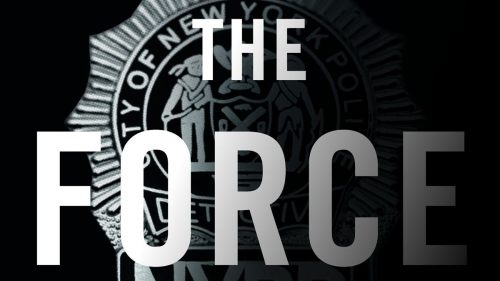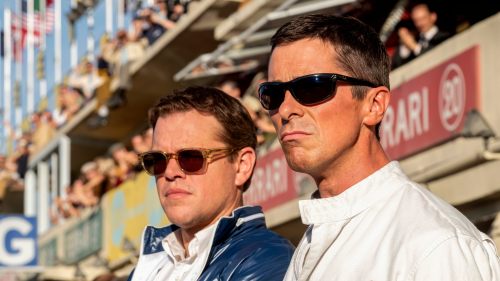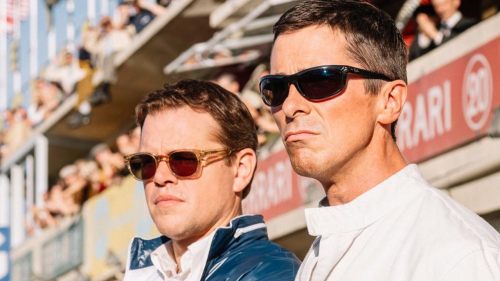Matt Damon: The Underrated Master Of Failure
Downsizing hits theaters soon. Get your tickets here!
What’s the first performance that comes to mind when you think of Matt Damon? Jason Bourne, amnesiac assassin turned action whistleblower? Mark Watney, endlessly determined accidental Martian? Linus, Danny Ocean’s go-to pickpocket? And it would be negligent not to mention Will Hunting, a math prodigy learning that the trauma he’s experienced isn’t the whole of who he is. Damon’s got range. It’s one of the reasons that, when he clicks, he’s an exciting performer. But, disparate as Damon’s most famous roles may be, there are key commonalities between them. Matt Damon’s heroes are honorable, courageous and, crucially, (if sometimes belatedly) self-aware men. In other words? Damon has an archetype.
Bourne and Watney are particularly good examples of an archetypal Damon hero. Bourne closes out The Bourne Ultimatum, the original ending to his series (Jeremy Renner’s follow-up The Bourne Legacy is an interesting failure and Damon’s own Jason Bourne is the very definition of an undercooked relaunch) by asking a fellow assassin to do the same thing a mortally-wounded Clive Owen asked him back in The Bourne Identity: “Look at us. Look at what they make you give.” Bourne’s quest for answers, revenge and ultimately justice ends with a moment of empathy and understanding.
Watney, The Martian’s title character, is refreshingly emotionally intelligent. Once the initial, understandable shock of nearly dying and accidentally being marooned on Mars wears off, Watney vows that he will escape. But he never loses sight of the very real, very high chance that he will die. Sometimes he finds the humor in it – noting the numerous ways that his attempts to cultivate live food could quite literally blow up in his face. Sometimes he lets the range out, as when a mechanical failure destroys his crops and nearly kills him. Once he’s out of immediate danger, Watney screams and beats the walls of his rover. But the next morning, he goes right back to work. When things are at their bleakest, Watney accepts his impending death. He’s not happy about it, but he’s found grace in the fact that he’s dying as part of a mission greater than himself. And even though he’d have every right to be sullen, Watney instead chooses to comfort his commanding officer Lewis (Jessica Chastain), who blames herself for his being left behind. Rather than lash out, he entrusts her with his farewell to his parents. Like Bourne at the end of his journey, Watney is a thoughtful, deeply decent man.
Using Bourne and Watney as the base, the archetypal Matt Damon hero is an honorable, good-hearted man. He’ll possess an acute awareness of the world beyond him and a strong understanding of other people. He won’t always be one step ahead, but he will have a good idea of what to do next, and his plans will ultimately work out more or less. If Watney and Bourne are the biggest examples of Damon’s archetype, they’re far from the only ones.
But Damon doesn’t always play to his archetype. Sometimes he’s even gone so far as to outright defy it. Whether he’s playing a sociopath, a rogue angel or the type of astronaut Mark Watney would punch in the face on general principle, when he toys with his image, interesting things happen.
Consider Tom Ripley, The Talented Mr. Ripley’s titular talented man. Ripley’s an expert con man, capable of tricking almost anyone into believing that he’s a man of means and taste. As his tale continues, he acquires ever more resources to further his deceptions – money, homes, material goods, trendy tastes in music. But, beyond the most superficial level, Ripley is completely incapable of interacting with another person. He envies Dickie Greenleaf (Jude Law)’s social status and material goods, and basks in his attention, but cannot handle being spurned by the flightly, shallow Greenleaf. Even after accidentally killing Greenleaf, assuming his identity and setting up a ritzy existence complete with friends and lovers, Ripley continues to covet Greenleaf’s beau Marge (Gwyneth Paltrow). He’s genuinely stunned when she confesses that she never pursued him because she’s certain he murdered Greenleaf. Even when Ripley begins to feel something deeper for Peter Smith-Kingsley (Jack Davenport), something that might even be love, he cannot conceive of anyone truly wanting the real Tom Ripley. Nor can he allow anyone to uncover his murders and his con game. So, he murders Peter, and, to quote the screenplay, closes The Talented Mr. Ripley alone, “in a nightmare of his own making.”
Where Tom Ripley was only capable of understanding people through a single, specific, shallow lens, in Dogma, Damon’s fallen angel Loki is insightful. Where Ripley couldn’t get close to anyone without fearing the loss of himself, Loki has a best friend, fellow fallen angel Bartleby (Ben Affleck). They’ve known each other since the beginning of existence, and care deeply for each other. But where the archetypal Damon hero constantly questions not only himself, but the world, his place in it and the people he shares it with, Loki remains cheerfully convinced of his own righteousness right up until his best friend starts murdering innocent people in the streets and plotting to unmake reality. He recognizes that Bartelby is getting more and more extreme over the course of their quest to get back into heaven, even directly comparing him to Lucifer during an argument, but he sticks to their plan anyway. By the time Loki’s decided to step up and stop his friend, he’s a drunken, despairing, mortal mess. A drunken, despairing, mortal mess who Bartleby promptly shivs. Loki dies astonished, an angel who was cast out for questioning God undone by his refusal to question his friend until the point of no return is long past.
And then there’s Interstellar’s Dr. Mann, my favorite of Damon’s anti-archetypal. Although Interstellar predates The Martian by a year, Mann’s a magnificent dark mirror to Mark Watney. Mann was once a beloved hero, one of three astronauts NASA sent through a wormhole in search of a habitable planet as Earth got sicker and sicker. He knew that it was potentially a one-way trip, and that those who followed him would be counting on him to provide accurate information about the planet he’d been sent to. When Cooper (Matthew McConaughey) and company initially rescue Mann (whose casting was a surprise, since Damon was kept out of Interstellar’s publicity and advertising and was deliberately uncredited), he seems to be everything he’d been hailed as on Earth. He weeps, telling his rescuers to pray they never know how good it is to see another human face. He takes them on a tour of his world, and offers to help get habitats set up. And then he tries to murder Cooper and his crew so that he can take their ship for himself. As he himself says to a stunned Cooper: "When I left Earth, I felt fully prepared to die. But I just never faced the possibility that my planet wouldn’t be the one. None of this turned out the way it was supposed to."
Later, as Cooper and Brand (Anne Hathaway) try to warn Mann off of attempting a docking maneuver that ultimately kills him, the cowardly astronaut insists that he’s doing what’s best for humanity, murder and all. Mann is so self-consumed that he cannot even recognize what he’s doing as selfish. Taking part in a mission to save humanity’s future wasn’t enough for Mann. He had to be the one to do the saving himself, and by the time of his death, he’s fully deluded himself into believing that he and he alone can and will save his species. Damon’s genuinely frightening in the role, for the intensity he brings to it, for his ever-increasing desperation and for how wonderfully it perverts his star image. Damon’s archetype has laid the ground for great characters and great performances. Damon twisting that archetype has done the same.



